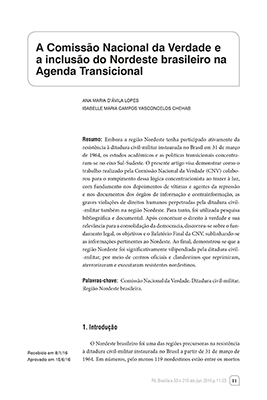Legislar por indicadores: a iniciativa legislativa brasileira anticorrupção conforme a influência de atores transnacionais
Márcio Ricardo Staffen
Resumo
Esta pesquisa objetiva mensurar a real capacidade de influência de indicadores de governança transnacionais sobre a iniciativa legislativa brasileira anticorrupção na Câmara dos Deputados, especialmente na fase de propositura de novos projetos de combate à corrupção, tema de máxima pressão social, institucional e corporativa entre 2015 e 2017. Para tanto, o texto aborda o uso de indicadores transnacionais e a produção normativa segundo a lógica do transnacionalismo, para determinar os grupos de pressão que atuam no enfrentamento da corrupção e, ao fim, concluir que os meios normativos de prevenção e repressão aos atos de corrupção proporcionalmente recebem maior influência de atores transnacionais na justificação das proposituras legislativas, demonstrando uma guinada nas bases materiais de exercício de soberania popular. Para o desenvolvimento da pesquisa, utilizou-se o método indutivo, operacionalizado pelas técnicas de conceitos operacionais e da pesquisa bibliográfica. Simultaneamente foram analisados todos os projetos de lei e propostas de emenda constitucional, protocolados entre 2015 e 2017 na Câmara dos Deputados, cuja temática se relaciona com a prevenção e a repressão à corrupção.
Palavras-chave
Transnacionalismo. Corrupção. Atores transnacionais. Indicadores. Iniciativa legislativa.
Título, resumo e palavras-chave em inglês
Legislating by indicators: the Brazilian legislative anticorruption according to the influence of transnational actors
Abstract: The presente research aims to analyze the influence of transnational governance indicators in the Brazilian initiative against corruption in the Chamber of Deputies. Assuming that the Brazilian legislative initiative is caudatory of external pressures or derived from partisan physiology guidelines, confronting the justifications for each bill and/or constitutional amendment deserves attention in order to measure the real capacity of influence that transnational indicators exert on the Brazilian legislative process, especially in the stage of proposing new projects on the subject of maximum social, institutional and corporate pressure in the period from 2015 to 2017, i. e. the fight against corruption. To that end, the text begins with the approach on the use of transnational indicators and normative production from the logic of transnationalism, to determine the pressure groups that work on the fight against corruption, in order to conclude that the normative means of prevention and repression to acts of corruption proportionally receive greater influence from transnational actors, justifying the legislative proposals, demonstrating a turn in the material basis of exercise of popular sovereignty. The inductive method was used for the development of the present research, operationalized by the techniques of operational concepts and bibliographical research. At the same time, all draft laws/constitutional amendments filed between 2015 and 2017, were analyzed in the Chamber of Deputies, whose theme is related to the prevention and repression of corruption.
Keywords: Transnationalism. Corruption. Transnational actors. Indicators. Legislative initiative.
Como citar este artigo
(ABNT)
STAFFEN, Márcio Ricardo. Legislar por indicadores: a iniciativa legislativa brasileira anticorrupção conforme a influência de atores transnacionais. Revista de Informação Legislativa: RIL, Brasília, DF, v. 56, n. 221, p. 169-193, jan./mar. 2019. Disponível em: http://www12.senado.leg.br/ril/edicoes/56/221/ril_v56_n221_p169
(APA)
Staffen, M. R. (2019). Legislar por indicadores: a iniciativa legislativa brasileira anticorrupção conforme a influência de atores transnacionais. Revista de Informação Legislativa: RIL, 56(221), 169-193. Recuperado de http://www12.senado.leg.br/ril/edicoes/56/221/ril_v56_n221_p169
